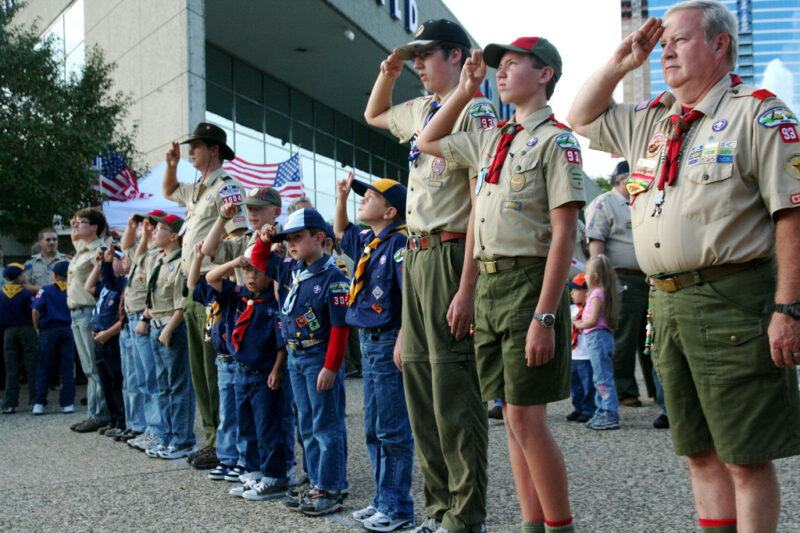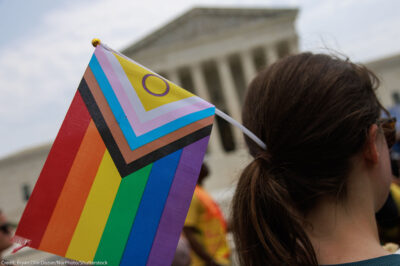
In 1978, 8-year-old James Dale joined the Cub Scouts. He followed the advancement trail and eventually became a Boy Scout in 1981. After earning numerous merit badges and skill awards over the next seven years, Dale achieved the rank of Eagle Scout in 1988, the highest rank attainable in the Boy Scouts. He applied for adult membership in 1989 and became a scout leader soon after. But in the summer of 1990, Dale received a letter informing him that his membership had been revoked, simply because he was gay.
Despite Dale's 12-year relationship with the Boy Scouts, the organization severed their ties with him after learning of a news article that identified him as the co-president of his university's Lesbian/Gay Alliance. Dale subsequently filed suit in New Jersey courts and eventually reached the Supreme Court of the United States in 1999. In a 5-4 decision, the Supreme Court narrowly affirmed the Boy Scouts right to deny membership to openly gay individuals.
But the Boy Scouts' victory was not meant to last.
Now the Boy Scouts did an about face. On July 27, a full 25 years after they revoked Dale's membership, the it would extend membership to openly gay leaders.
This comes after the Boy ScoutsÔÇÖ move two years ago to on membership to gay youth. The decision was an important step, but because it left the ban in place for openly gay leaders, it was an unsatisfying one. If the Boy Scouts could recognize that sexual orientation has no bearing on a person's ability to be a scout, they also should have recognized that it has no bearing on a person's ability to be a scout leader.
More troublingly, though, the hesitation also perpetuated the historic and homophobic perception of gay adults as promiscuous individuals with nefarious intentions. The recent decision to finally end the ban on openly gay leaders should, therefore, be celebrated.
But not just yet.
Although it is now possible for gay leaders to serve openly in the Boys Scouts of America, doing so is still just that: a possibility, not a guarantee. The Boy Scouts has lifted its ban on openly gay leaders and employees, but it has allowed religious chartered organizations, which operate more than 70 percent of the Boy Scouts Scouting units, "to use religious beliefs as criteria for selecting adult leaders, including matters of sexuality," according to their announcement.
The Boy Scouts' exemptions thereby maintain restrictions on capable and willing gay leaders. This is why we cannot clap prematurely.
As advancements in LGBT rights accelerate, individuals and institutions have claimed a right to discriminate based on religious objections with increasing frequency. In this way, the lift of the ban is another incremental step for the Boy Scouts that, like the decision two years ago, is sorely unsatisfying.
The decision also hinders advancements toward greater equality within the Boy Scouts. Unlike the Girl Scouts of the USA ÔÇö another scouting organization that also has endured for over a century and boasts a two-million-plus membership ÔÇö the Boy Scouts has yet to take steps toward the inclusion of transgender members.
Last month, the Girl Scouts of Western Washington made headlines when they rejected a $100,000 gift, given under the condition that it would not be used for transgender girls. A month prior to the rejection, Girls Scouts USA Chief Girl Expert Andrea Bastani Archibald stated, "There is not one type of girl," and, "every girl's sense of self, path to it, and how she is supported is unique."
The Girl Scouts subsequently created the hashtag #ForEVERYGirl, a virtual cheer for inclusion. When, then, will the Boys Scouts of America, a similarly cherished and longstanding American organization, truly be for every boy and their leaders?



